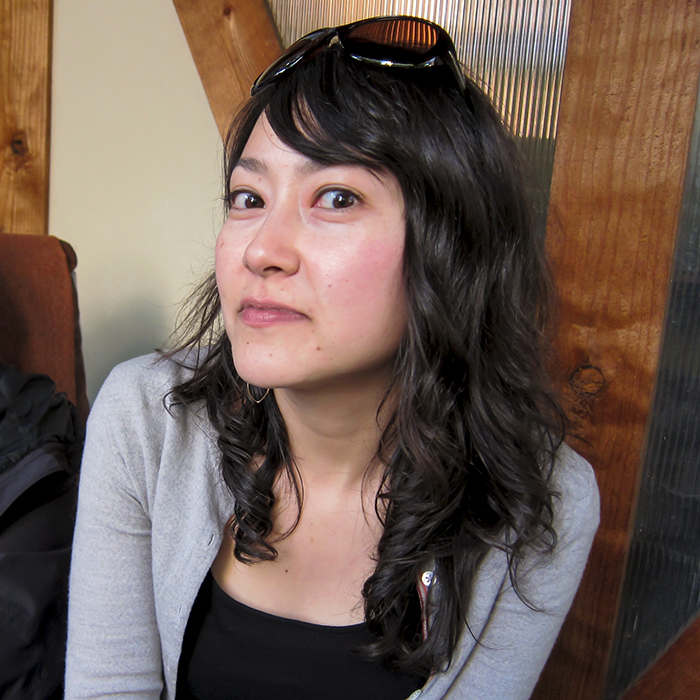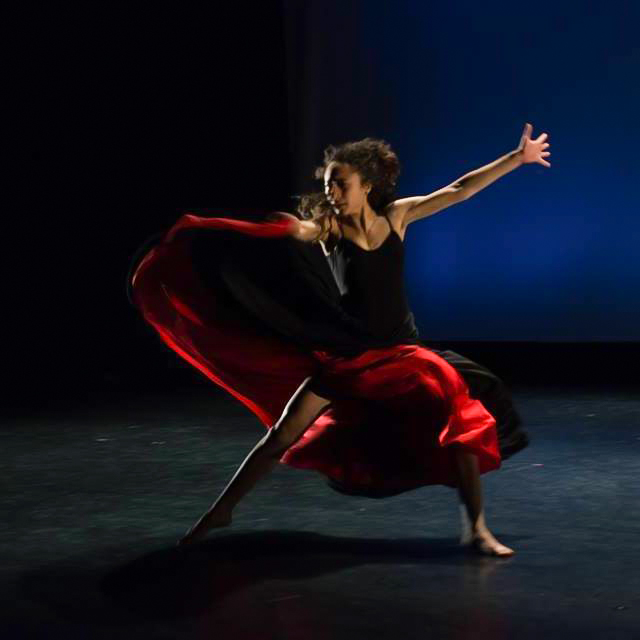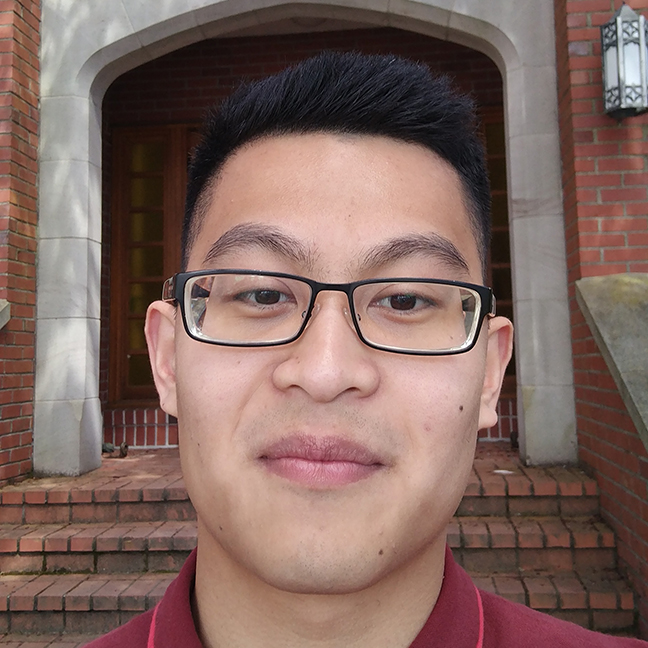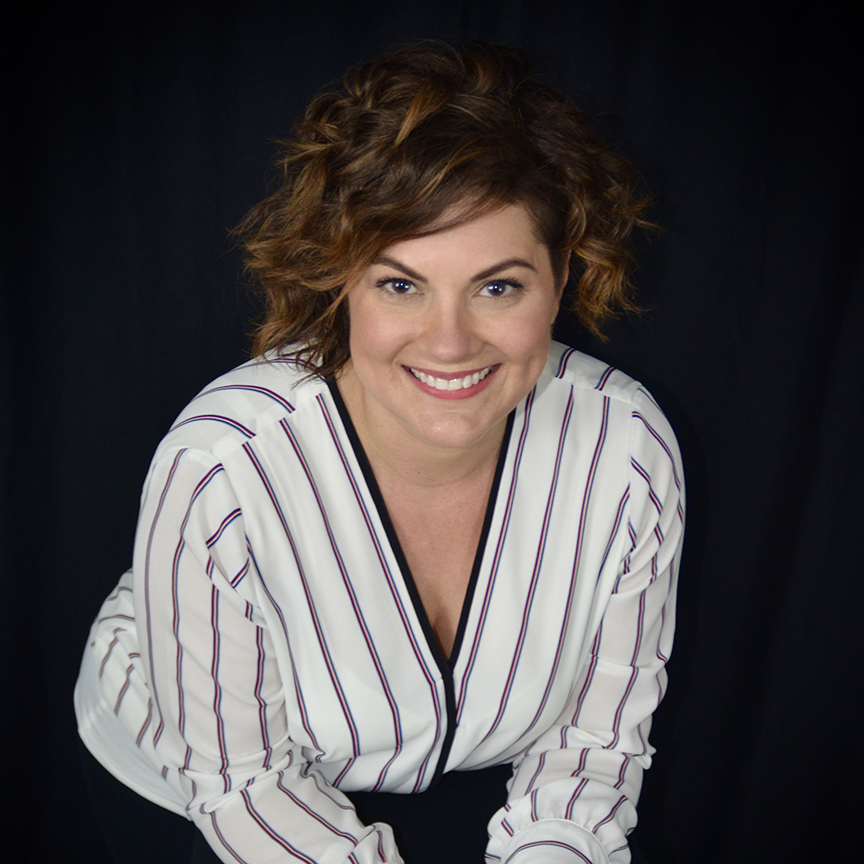Student Spotlights 2019
Philosophy
Maya Alapin

Maya Alapin is a doctoral student, a single mom of two daughters, and a small business owner. A student in Philosophy, Maya will be defending her dissertation, The Philosophical Implications of Reading Plato Through Musical Analysis, this May.
Maya's dissertation offers a fresh and new reading of Plato’s magnum opus, the Republic. For centuries there has been debate about the compositional structure of the text. Combining digital and textual analysis, Maya offers a new way to study the structure of the work. She is interested in how this insight contributes to our understanding of the integrity of the text, its central arguments about the soul and its inner health, and most importantly, what insight it gives into the motivations and artistic vision of the author. She explains her interests in contemporary terms: “the main issue I am curious about, is how Plato set out to save individuals from the misery of life. I find it fascinating how obsessed he was with images, and particularly images containing certain forms and number relationships embedded in them. He had an idea that we have to be constantly in touch with images and experiences of what he called ‘musical’ relationships so that we, in turn, become internally organized and ‘musical’ as well.”
Her best experience at UNM has been being heard. She came from schools with contentious and competitive classrooms. Particularly at Oxford, she longed for flexible, fun, curious conversations. At UNM she feels that ideas are still meant to be touched and accessed, and that students and teachers still have mutual respect and shared interests. The flow of conversations during her degree always felt free and open to her. She loves the fact that the very end of her higher education was an authentic shoutout to the author she studies—Plato—since he supported friendship and genuine curiosity in learning.
One of the challenges Maya has encountered is being a single mom and full-time student and an entrepreneur all at the same time. It has also proved to be an opportunity for her to learn real balance and the meaning of efficiency and planning. Although she wasn’t exactly planning to run a real estate business while in the final years of her PhD studies, becoming an independent mother of two meant that she had to make money while earning her degree. She thought, “I could give up on this topic I really love and believe in, or… I can just make it work.” So she made it work. It has been a challenge to learn to balance running a business and learning skills in the financial world she never thought she would want or need, while caring about an esoteric and inherently low-dollar topic—the ancient Greek world.
Maya is grateful to her supervisor, John Bussanich. “John has allowed me to explore mysticism, a truly taboo topic in academia”, she says. “He has allowed me to study the parts of the ancient world that speak to my interests in the soul and in soteriology,” she explains, “and he has encouraged me to follow my intuition and to trust my own experience with the texts.” She is also happy to have Kelly Becker and Pierre-Julien Harter as committee members at UNM, as well as Peter Kalkavage at St. John’s College, Annapolis.
When asked how she would change the world if she could, Maya said, “studying a long-dead era, and thousands-years old topics, I have had a chance to go outside of myself, to consider life from a very differently-motivated perspective. The ancients—and I am thinking of Plato and a variety of neo-Platonists of different persuasions who followed Plato in some way—as they discovered how powerful humans can and would be, were curious about their innate powers, the state of their souls, the health of their inner life. If I could change the world, I would refresh everyone’ hearts towards an interest in these ancient topics—in how to love, how to be a good person, how to be happy, and how to be an integrated human being. I think that if everyone believed in meaning, and purpose, and the power of personal effort, there would be a lot less anger and suffering in humans of all kinds.”
Linguistics
Keiko Beers

Keiko Beers is a motivated linguist who collaborates with a language community in their language revitalization efforts. A doctoral candidate in linguistics at UNM, Keiko’s dissertation investigates how the grammar of Tohono O’odham, an endangered language spoken by indigenous people in Arizona and Sonora, Mexico, has possibly changed during the last century. These and other indigenous communities have been the target of violent colonial practices within the United States which, among other things, applied coercive measures to replace their native languages with English. “Within this context,” Keiko explains, “I explore how threatened languages change in ways that may differ from what is observed in vibrant languages. In order to carry out my study, I compare archival records of O’odham oral narratives from the early 1900s with modern use of language as captured in YouTube videos.”
As Keiko has pursued her project, she has encountered a number of historical texts from the early 1900s whose forms (i.e. wax cylinders and hand-written field notebooks) are difficult for most people to access. To rectify this problem, she has been collaborating with members of the O’odham community and other linguists to translate these materials into both Spanish and English. “Some O’odham educators,” she notes, “have also stated their desire to use the improved historical texts to develop culturally salient curriculum.”
Keiko’s interest in this topic originates from her long-term participation in the O’odham Ñe’ok (Language) Revitalization Project, a program which partners UNM linguists with O’odham community members. The project’s goal “is to promote the [O’odham] language and increase its use especially among the younger generations who will be the ones to pass on the language to future generations.”
Keiko chose UNM for her doctoral work due to the linguistic department’s work with different language projects in the Southwest. “I knew I wanted to be in a program that contributed not only to linguistic scholarship but also community concerns surrounding language rights, revitalization, and so on.” In addition to her research, Keiko is also an accomplished course instructor as well as a mentor for the Mellon Mays Undergraduate Fellowship Program. Although it’s been a challenge to juggle her research, teaching, and mentorship, Keiko has excelled at the tasks and has received substantial recognition for her work; she was the recipient of the prestigious UNM-Mellon Doctoral Fellowship (2017-2018) and the Latin American and Iberian Institute Fellowship (2018-2019), and is currently a fellow with the Center for Regional Studies. She plans to use her rich experiences to continue work both within and outside of academia after graduation.
When asked how she would like to change the world, Keiko replied that she would find a way to eliminate language-based discrimination. “Because language is something we all use and take for granted, it is easily overlooked as a tool that is frequently used for propping one group up and marginalizing another,” she noted. “When languages are looked at through a scientific lens … the idea that some varieties of a language or some languages are inferior to others is completely unfounded.”
Biology
Timothy Ohlert

Biology doctoral candidate Timothy Ohlert is a rising star in the ecological world. Earlier this year, Timothy was one of ten students nationally selected to receive the Katherine S. McCarter Graduate Student Policy Award by the Ecological Society of America, the world’s largest organization of professional ecologists. His research, conducted in deserts across New Mexico, Arizona, and California, examines the desert plant community’s response to extreme climates. As Timothy explains, “Deserts are one of the most dynamic ecosystems that I know of. The incredible amount of year-to-year variability that these ecosystems feature produces countless questions for scientists like me to ask. I find it fascinating to learn and discover how plants in the most extreme environments cope with further environmental stress.”
Timothy’s research is significant for a number of reasons, but perhaps the greatest is that, as he notes, understanding ecology “is the basis for understanding the natural world around us. Since drylands make up a third of the world’s terrestrial surface, understanding how dryland ecosystems function is critical to understanding how humans interact with and can benefit from the ecosystems in which we live.”
Originally hailing from Wisconsin, Timothy earned his bachelor’s degree in Environmental Science, Policy, and Management from the University of Minnesota before heading to UNM. He chose to pursue graduate study in the Biology department due to its inclusive atmosphere and world-class faculty and students.
Some of his favorite graduate school experience so far connects to his research at the Sevilleta National Wildlife Refuge and his participation in its Research Experience for Undergraduates program. Timothy works as a mentor with the program, where he, other graduate students, and professors are paired with undergraduates to complete research projects together. “I have enjoyed teaching these young scientists,” he says, “and introducing them to the desert ecosystems of New Mexico.”
Dance
Justice Miles

Justice Miles is out to change the world through dance. A recent Masters of Fine Arts graduate in Dance, she is creating work which explores hybrid identities and supports those who “don’t fit within pre-determined boxes society has set up.” Her work explores the idea of modern synthesis, which she proposes “suggests that we can build a modern society that supports fluid identity and freedom” because it “supports human agency in defining oneself through synthesizing the various cultures and ideas that are a part of what makes you who you are.”
Justice explains that her dissertation, titled The Modern Synthesis of Josephine Baker and Carmen Amaya, “analyzes how these women synthesized complex binaries and identity categories to create hybrid modern identities, which I define as modern synthesis.” Her project also explores how these women influenced her MFA choreographic work Ink on Cotton as well as her artistic philosophy on modern synthesis. “I live a life that is a synthesis of identities, races, and cultures,” she explains, “and I wanted to create choreography and write a dissertation that reflects my interests in cross cultural connections in dance and the arts.” Justice chose to study at the University of New Mexico, in part, due to its rare and unique flamenco and contemporary dance offerings, which offers students the opportunity to work with celebrated flamenco and Spanish dance artists from Spain as well as be immersed in Spanish language, dance, and culture. “The MFA program was an amazing program because it allowed me to create choreography that explored the in between spaces of flamenco and contemporary dance,” Justice says.
One of her best experiences in grad school involved meeting Meira Goldberg, a well-known flamenco professor, choreographer, and dancer. Goldberg invited Justice to presenter her choreography in New York and her dissertation research in Veracruz, Mexico. Justice describes this as a life-changing experience, one in which she was able to “phenomenal scholars and artists also dedicated to blackness, flamenco and the arts. It was exciting because as a biracial/African American woman studying flamenco and dance, I had sensed connections between African American arts and flamenco so it was incredible to meet others who are also invested in cross-cultural connections in the arts.”
With her degree now in hand, Justice would love to move to New York and continue her study of flamenco and contemporary dance, but regardless of where she ends up she will continue dancing, choreographing, and creating other artistic projects. Ultimately, she hopes “to be a dancer that challenges the world and makes people think,” creating work which will encourage people to critically re-consider hierarchy, stereotypes, racism, sexism, and colonialism. “Dance and choreography is powerful because it can explore so many emotions and ideas through sound, visuals, music and kinesthetic knowledge,” Justice says. “Through the body, dance can express the human experience and I think it is a powerful medium that can change the world.”
Earth and Planetary Sciences
Jon Golla

Jon Golla is a man on a mission. A master's of science student in Earth and Planetary Sciences, Jon will be defending his thesis, Natural Trace Metal Salinization of the Jemez River, New Mexico this May and then moving forward to a doctoral program in Geology at the University of Illinois at Urbana-Champaign.
Jon's thesis examines the geothermal systems of the Valles Caldera, and studies how its saline hot springs "seep into and impair the water quality of the Jemez River." He hopes his research can aid in effective water management, especially in semi-arid areas like the southwestern United States. "As the population rises and with persistent droughts and diminishing snowpack, properly managing water resources becomes even more imperative," he explains. "[My] work emphasizes the importance of interactions between groundwater and surface water with implications of compromised water quality. Locally, this study also supplements the New Mexico Environment Department's Total Maximum Daily Load development and the U.S. Environmental Protection Agency’s ongoing New Mexico Water Quality Management Plan."
His decision to study at UNM, he says, was not a difficult one, influenced by the strength of the Earth and Planetary Science program as well as the ecological splendor of New Mexico. "The department is comprised of talented established and budding geoscientists and boasts first-class facilities, like the Center for Stable Isotopes, the Radiogenic Isotope Lab, and the Analytical Geochemistry Lab," he explains. He also loves the "magnificent landmarks and natural resources" of New Mexico.
Jon credits much of his growth as a scholar to his current advisor, Dr. Laura Crossey. "Laurie has allowed me to explore many ideas and methods," he explains. He cites her "steady support and encouragement" as the factor which enabled him to raise around $14,000 in local and national grants and scholarships, as well as earn a Graduate Research Fellowship from the National Science Foundation. "I am grateful to have Laurie as a mentor," Jon says, "as she has truly led be example through her own research and commitment to outreach and public communication."
When asked how he would change the world if he could, Jon said, "If I had the capabilities of a genie, I would grant everyone an opportunity to pursue their passion, or at least develop an interest. Often, doing so is a luxury due to obstacles related to financial and/or cultural reasons. I would also want to instill an absolute sense of belonging, as I believe it is key to personal and collective excellence."
UNM Graduate Studies wishes Jon all the best as he takes the next step in his graduate education at the University of Illinois at Urbana-Champaign.
Special Education
Lauren Weiss

Lauren Weiss is a Ph.D. Candidate in Special Education at the University of New Mexico (UNM). She is currently a teaching assistant working as the instructor of record for an introductory course in Special Education while working on her dissertation examining the effects of an inclusive intervention on social play skills for young children with autism spectrum disorder. Her research agenda focuses on empirical educational and behavioral practices that increase access to an effective and inclusive education for diverse students of underserved and misunderstood populations.
Lauren has provided educational and behavioral services to students with learning differences and behavioral challenges across the continent of North America for over 15 years. After obtaining her master’s degree in Special Education from UNM in 2015, where she was awarded Outstanding Student in Special Education, she continued doctoral studies to reach her goal of teaching higher education and engaging in empirical research that will improve the lives of diverse students, leading to a more inclusive society. Her current research focuses on empirical educational and behavioral practices that increase access to an effective and inclusive education for diverse students of underserved and misunderstood populations.
Lauren had the honor of being a 2017-2018 fellow at the New Mexico Leadership Education in Neurodevelopmental and Related Disabilities, serving as a representative at the National 2018 Disability Policy Seminar in Washington, DC, and is a member of the Phi Kappa Phi Honor Society since 2016. She has been the recipient of the following selected awards: 2019 recipient of the Graduate Studies Doctoral Conference Presentation Award, 2018-2019 William B. and Roberta V. Castetter Scholarship, 2017-2018 Carl & Emma Dunifon Endowed Scholarship, 2016-2017 Graduate Student Success Scholarship, and 2016-2017 American GI Forum of Albuquerque Endowed Scholarship in Education.
We recently asked Lauren about her graduate work and what’s inspired it, her UNM experience, and how she’d like to change the world. Read her answers below!
Graduate Studies (GS): What is your dissertation titled, and what is it about?
Lauren Weiss (LW): My dissertation is titled Effects of Classwide Behavioral Skills Training on Social Play Skills for Prekindergartners with Autism Spectrum Disorder. Inclusive education consists of students with disabilities educated alongside peers of typical development, both in academic and social conditions. A particular group of students with disabilities, children with autism spectrum disorder (ASD), frequently have deficits in social skills and difficulty generalizing learned skills to different contexts—yet they are often taught social skills in noncontextual environments and/or while isolated from peers of typical development. My research looks at how an inclusive intervention package (i.e., behavioral skills training, a brief intervention including direct instruction, modeling, practicing, and feedback provided to the entire class) benefits prekindergartners with and without disabilities; specifically focusing on young children with ASD and social play skills outcomes.
GS: What sparked your interest in this topic?
LW: I have worked with children with disabilities throughout North America in various clinical and educational roles for over 15 years and observed that in practice … children with ASD were taught social and play skills in a contrived setting with an adult. Children with ASD frequently have difficulty learning skills in one context, then using those skills in another context. Therefore, teaching social play skills to children with ASD in a nonsocial environment (e.g., therapy room) with adults (instead of typically developing peers) could make it challenging for the child to transition those skills to peers in the classroom or during scheduled free play periods. Besides the practicality in teaching prekindergartners with ASD social play skills within their classroom, I think this intervention will set up all prekindergartners for successful play interactions with each other.
GS: Do you think it has a greater application?
LW: I suspect this research will have greater application to New Mexico and nationally. In New Mexico, young students (ages 3-5 years) with disabilities are placed in segregated settings more than the national average with the greatest disparity among children with ASD … These statistics demonstrate the relevance of my dissertation topic, as well as the positive impact it can have in providing New Mexican educators with a practical intervention that can be applied classwide to include children with and without disabilities. Potential implications from my research regard: (a) the benefits of applying behavioral skills training in an inclusive manner (i.e., classwide); (b) how educators can incorporate multitiered systems and supports in preschools for young children with ASD to increase learning social play skills in a natural environment among typically developing peers; and (c) ways for public schools to comply with the inclusive portion (i.e., least restrictive environment) of the federal legislation governing special education services and supports (i.e., Individuals with Disabilities Education Improvement Act, 2004). My goal is to disseminate this research and expand it to discover efficient and effective inclusive practices for children with disabilities that general and special educators are comfortable implementing, thereby increasing the opportunities and time children with disabilities have in an inclusive setting.
GS: Why did you choose to go to UNM for graduate work?
LW: I was attracted to the Department of Special Education at UNM for the individualized approach to doctoral studies according to what the student wants to do with her/his doctorate. In addition, assistantship opportunities are crafted to provide extensive experiences to doctoral students. I knew I wanted to get more involved in single case research design and have a more intimate experience on a research team, which was offered to me at the time of admittance to the doctoral program. I was able to build upon a prior project assistantship by working as a research assistant helping to design and implement self-management strategies with children with Fetal Alcohol Spectrum Disorder. Also, I gained quality experience teaching in higher education as a teaching assistant for a graduate course on advanced applied behavior analysis, and have been the instructor of record for an undergraduate course on the education of the exceptional person. These experiences have provided me with the essential skills necessary to reach my goal of becoming a professor at an R1 institution.
GS: What are your plans after graduate school?
LW:It is likely that my initial 2-3 years after earning a Ph.D. will be committed to conducting additional research in a postdoctoral research fellowship and publishing that research in peer-refereed journals before applying to assistant professorships. My ultimate goal is to become a tenured professor at an R1 institution so I can continue my research agenda and teach preservice educators.
GS: What has been your best experience here so far? What has been the most challenging?
LW: I have had several amazing experiences while at UNM, especially with my advisor and dissertation committee members who were willing to support me in applying for scholarships and guiding my scholarly activities, such as mentoring me on how to turn my research papers into published work. In addition, I had remarkable experiences presenting research posters locally and nationally. For example, presenting at the 2018 Shared Knowledge Conference led to the opportunity to represent UNM at the state capitol for Graduate Education Day. Another example was when I presented my poster, Social interventions for young children with autism spectrum disorder: A review of research, at the ABAI 2019 Autism Conference where I gained insight and advice from researchers from around the world, like Norway. It is vital to hear encouragement from other researchers, as it provides a sense of social validity to my research.
It is challenging to be a full-time doctoral student in general. Besides the obvious anxieties of living without financial security, sacrificing common employment benefits, and transitioning from a practitioner/student to a scholar, the stress to avoid failure during my dissertation at times feels insurmountable. As a Ph.D. Candidate, it has been quite a nerve-racking predicament to take on the responsibility of conducting an intervention study for the first time, yet feel like there is no room for failure or else my academic career will end before it begins. I appreciate lessons learned through mistakes and do not shy away from taking risks if I believe there are innovative advances to be gained. At times throughout this process, I have relied on the support of family and friends to keep me motivated and to reaffirm my curiosity and tenacity for research.
GS: If you could change the world in some way, what would you do?
LW: If I could change the world in some way, I would increase equity across humankind. We are all individuals who have unique histories and characteristic differences that often get washed out when we exclusively focus on what is best for the majority of people. It is important to celebrate differences and provide the supports and opportunities that offer each individual success.
